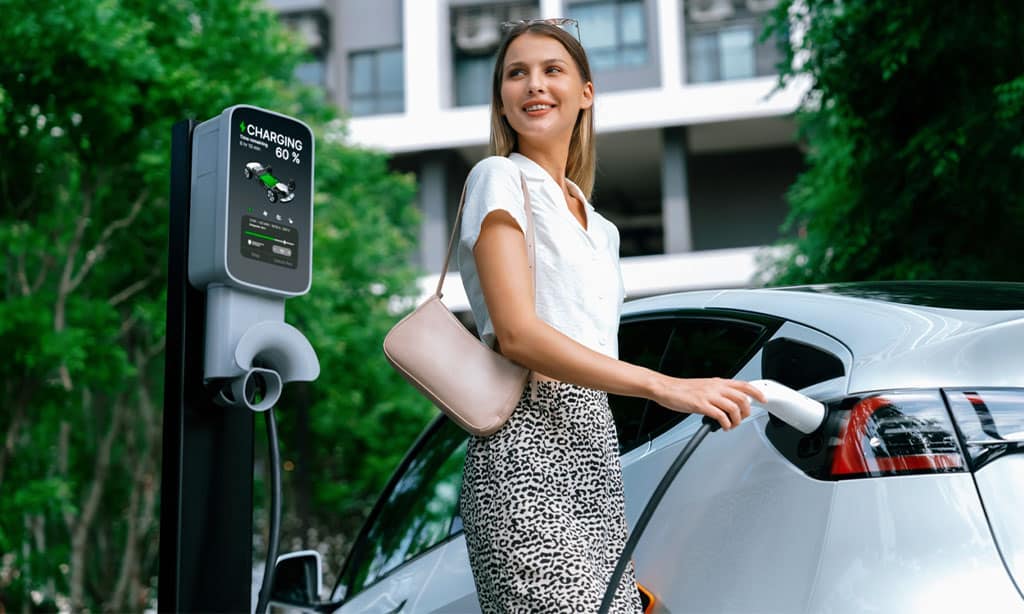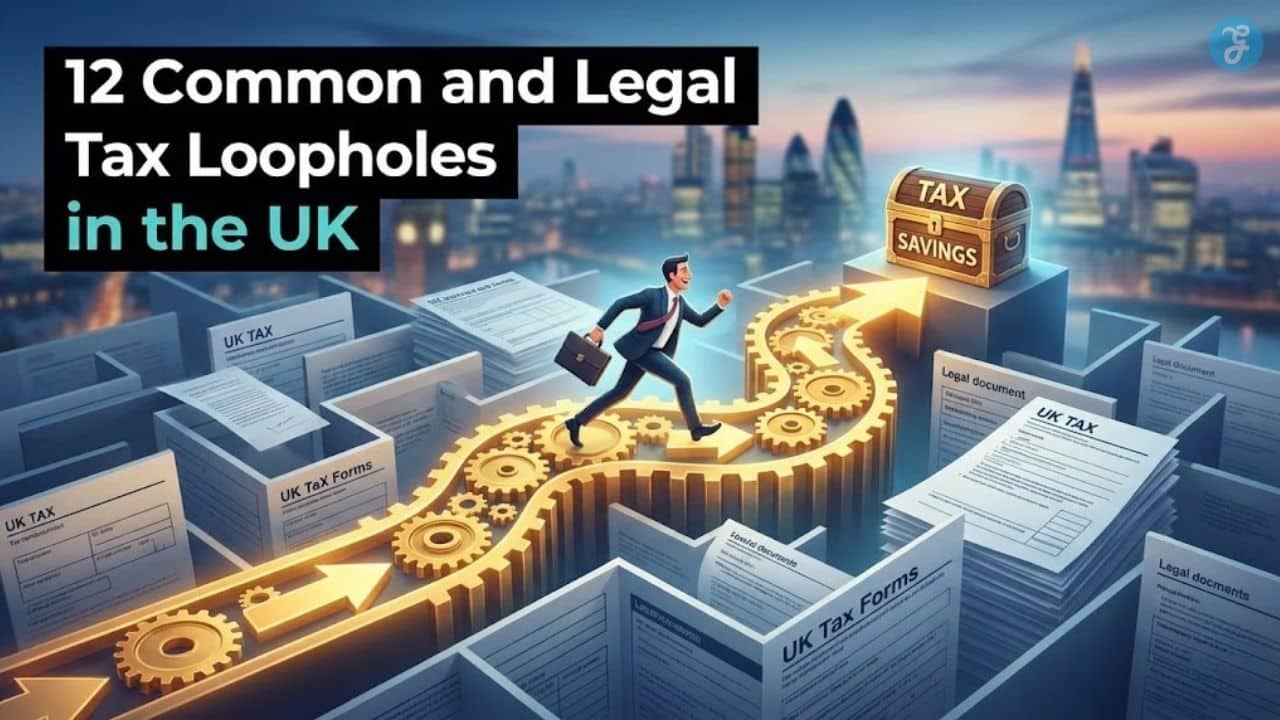As electric vehicles (EVs) continue to grow in popularity, many governments around the world are offering tax incentives and rebates to encourage adoption.
These financial benefits not only help reduce the cost of purchasing an EV but also promote a cleaner environment by reducing carbon emissions.
From tax credits to rebates, various countries have introduced policies to support individuals and businesses in making the switch to electric transportation.
In this detailed guide, we will explore 14 tax incentives and rebates for EV buyers across different regions around the world, highlighting how each incentive works and how it can help make EV ownership more affordable.
Why Tax Incentives Are Essential for EV Adoption
Tax incentives play a crucial role in driving the adoption of electric vehicles. By lowering the upfront costs, they make EVs more accessible to a broader population, incentivizing consumers to choose greener alternatives over traditional gasoline-powered cars.
Benefits of Tax Incentives for EV Buyers
- Lower Purchase Costs: Incentives reduce the initial financial burden of buying an EV, making it a more attractive option for consumers.
- Support for Green Initiatives: Governments use tax incentives to promote cleaner energy sources and reduce greenhouse gas emissions.
- Long-Term Savings: Many EV incentives also provide savings on fuel and maintenance costs, offering long-term benefits for EV owners.
1. Federal EV Tax Credit (United States)
In the U.S., buyers of new electric vehicles may qualify for a federal tax credit of up to $7,500. The amount of the credit depends on the battery capacity of the EV and the manufacturer’s compliance with federal regulations.
Eligibility Requirements
- New EVs: The credit applies to new EV purchases only, not used or leased vehicles.
- Manufacturers: The full credit is available until a manufacturer sells 200,000 qualifying vehicles; after that, the credit is phased out.
- Income Caps: Recent changes have introduced income eligibility limits for individuals and joint filers.
Benefits for EV Buyers
- Reduced Purchase Price: The federal tax credit can significantly lower the cost of purchasing a new electric vehicle.
- Wide Availability: The credit applies to many popular EV models, making it accessible to a large number of consumers.
2. Plug-in Car Grant (United Kingdom)
The Plug-in Car Grant (PiCG) in the UK offers up to £1,500 off the purchase price of eligible electric vehicles with an approved range and emissions rating. The government aims to make zero-emission vehicles more affordable and increase EV adoption.
Key Eligibility Criteria
- Price Cap: The grant applies to EVs priced under £32,000.
- Approved Vehicles: Only vehicles that meet specific criteria, including battery size and emissions ratings, are eligible for the grant.
- Zero-Emission Focus: The vehicle must be fully electric, as hybrids no longer qualify for the PiCG.
Benefits for EV Buyers
- Lower Upfront Costs: The grant helps reduce the initial price, making EVs more affordable for UK buyers.
- Increased Affordability: With price caps and government support, mid-range EVs become more accessible to a wider audience.
3. Clean Vehicle Rebate Program (California, USA)
California offers the Clean Vehicle Rebate Project (CVRP), providing rebates ranging from $1,000 to $7,000 for qualifying electric vehicles. The rebate amount depends on the buyer’s income and the type of vehicle purchased.
Who Can Apply
- California Residents: The program is available exclusively to California residents purchasing or leasing a new EV.
- Income-Based Rebates: Low- and moderate-income households may qualify for higher rebate amounts.
- Vehicle Eligibility: Both fully electric and plug-in hybrid vehicles qualify, though rebate amounts differ.
Benefits for EV Buyers
- Additional Savings: The rebate complements the federal tax credit, providing even greater financial incentives for Californians.
- Support for Low-Income Buyers: Enhanced rebates for low-income families make EVs more accessible to a broader range of consumers.
4. Bonus Ecologique (France)
The Bonus Ecologique offers financial rebates for buyers of new electric vehicles, with incentives of up to €6,000. This program supports the French government’s goal of reducing carbon emissions and promoting cleaner transport.
Key Requirements
- Vehicle Price: The maximum incentive is available for EVs priced under €45,000.
- Battery Size: Eligible vehicles must have a battery capacity that meets France’s emission standards.
- No Emission Vehicles: Only fully electric vehicles qualify for the full rebate, while hybrid incentives have been reduced.
Benefits for EV Buyers
- Significant Savings: The €6,000 incentive substantially lowers the cost of new electric vehicles in France.
- Environmental Support: The program is aligned with France’s commitment to reducing its carbon footprint and increasing EV adoption.
5. State-Level EV Incentives (Germany)
Germany offers a state-level environmental bonus for EV buyers, providing rebates of up to €9,000 for fully electric vehicles and €6,750 for plug-in hybrids. The incentive is split between federal support and contributions from automakers.
Eligibility Criteria
- Purchase Price Limits: The full bonus is available for EVs priced under €40,000.
- Manufacturer Contribution: Automakers contribute to the bonus by reducing the vehicle price before taxes.
- Electric Range: Plug-in hybrids must meet specific electric range criteria to qualify.
Benefits for EV Buyers
- Generous Rebates: Germany’s incentives offer significant savings, particularly for buyers of lower-priced EVs.
- Government and Industry Collaboration: The joint contribution from both the government and automakers increases the affordability of EVs.
6. Ontario Electric Vehicle Incentive (Canada)
Ontario provides an electric vehicle rebate of up to CAD $5,000 for the purchase of eligible EVs. The province’s program aims to reduce greenhouse gas emissions and promote sustainable transportation options.
Key Details
- Eligible Vehicles: Fully electric vehicles and plug-in hybrids with a minimum battery capacity qualify.
- Price Cap: Vehicles priced above CAD $55,000 are ineligible for the rebate.
- Charging Equipment Rebate: Buyers can also receive rebates on home charging equipment.
Benefits for EV Buyers
- Financial Relief: The rebate lowers the purchase price, making EVs more affordable for Canadian consumers.
- Charging Infrastructure Support: Additional rebates for charging equipment make transitioning to electric easier.
7. Electric Vehicle Discount (Australia)
Australia’s Electric Vehicle Discount provides EV buyers with a tax exemption on certain electric vehicles. This policy is designed to reduce upfront costs and encourage wider EV adoption across the country.
Key Features
- Luxury Car Tax Exemption: Electric vehicles below the luxury car tax threshold are exempt, saving buyers thousands of dollars.
- State Incentives: In addition to national benefits, several Australian states offer additional rebates and incentives for EV purchases.
- Zero-Emission Vehicles: Only fully electric vehicles are eligible for the tax exemption, excluding hybrids.
Benefits for EV Buyers
- Tax Savings: The luxury car tax exemption significantly reduces the cost of higher-end EVs.
- State-Level Support: Buyers can benefit from both national and state-level incentives, increasing overall savings.
8. Zero Emission Vehicle Incentive (New Zealand)
New Zealand offers a Clean Car Discount for buyers of zero-emission vehicles, with rebates of up to NZD $8,625 for fully electric vehicles. The program aligns with New Zealand’s efforts to reduce carbon emissions and increase the uptake of green vehicles.
Key Eligibility Factors
- CO2 Emissions: The rebate is only available for vehicles with zero emissions or low emissions (hybrids receive a smaller rebate).
- Eligibility Period: The vehicle must be purchased or imported after a certain date to qualify for the rebate.
- Approved Models: The EV must be a new or near-new import to qualify for the rebate.
Benefits for EV Buyers
- Generous Rebate: The NZD $8,625 rebate makes EV ownership more affordable for New Zealanders.
- Support for Imported EVs: The incentive also applies to imported vehicles, making it easier to access a wide range of models.
9. Electric Vehicle Incentives (China)
China offers several incentives and subsidies for EV buyers, including reduced taxes and rebates for purchasing new energy vehicles (NEVs). The incentives are part of China’s effort to combat air pollution and reduce reliance on fossil fuels.
Key Features of China’s EV Incentives
- Purchase Subsidies: Buyers of new energy vehicles (NEVs), including fully electric and plug-in hybrid cars, can receive significant subsidies that vary by province and city.
- Exemption from Vehicle Purchase Tax: NEVs are exempt from the 10% vehicle purchase tax, providing substantial savings on the overall cost of an EV.
- License Plate Privileges: In cities like Beijing and Shanghai, where gasoline vehicle license plates are limited and expensive, NEVs enjoy preferential treatment, making it easier to register an electric car.
Benefits for EV Buyers
- Reduced Purchase Costs: Buyers benefit from both direct subsidies and tax exemptions, making EVs much more affordable.
- Convenience: License plate privileges make purchasing and registering an EV easier, particularly in cities with restrictions on traditional vehicle registrations.
10. EV Rebate Program (Norway)
Norway leads the world in EV adoption, thanks in part to a broad range of tax incentives and rebates that drastically reduce the cost of buying and owning an electric vehicle. EV buyers in Norway benefit from tax exemptions, rebates, and other financial perks that make electric vehicles an obvious choice.
Key Incentives in Norway
- No Purchase Tax: Electric vehicles are exempt from Norway’s high vehicle purchase tax, making EVs more affordable than gasoline-powered cars.
- No VAT: EVs are also exempt from the 25% Value-Added Tax (VAT), significantly reducing the upfront cost.
- Toll and Parking Discounts: EV owners enjoy discounts or exemptions from road tolls, ferry rides, and parking fees in many areas.
Benefits for EV Buyers
- Significant Financial Savings: Norway’s tax exemptions and incentives can reduce the cost of EV ownership by tens of thousands of dollars.
- Environmental and Economic Impact: Norway’s policies have made EVs the dominant vehicle type on the road, drastically reducing carbon emissions while saving consumers money.
11. EV Tax Credits and Incentives (Japan)
Japan offers a mix of tax reductions, subsidies, and incentives for buyers of electric and hybrid vehicles. The government’s goal is to promote cleaner vehicles and reduce the nation’s dependence on imported fossil fuels.
Key Incentive Features
- Green Vehicle Tax Reductions: Buyers of electric and hybrid vehicles receive tax reductions based on the vehicle’s CO2 emissions and fuel efficiency.
- Subsidies for Clean Vehicles: Japan offers direct subsidies for the purchase of new electric and plug-in hybrid vehicles, further reducing the cost of going green.
- Local Government Incentives: In addition to national incentives, local governments in Japan may offer additional rebates or tax breaks for EV buyers.
Benefits for EV Buyers
- Lower Vehicle Taxes: Reduced taxes and fees make owning an EV in Japan much more affordable.
- Subsidized Purchases: Government subsidies reduce the upfront cost of EVs, encouraging more consumers to make the switch.
12. Electric Vehicle Incentives (South Korea)
South Korea has implemented a generous incentive program for electric vehicle buyers, with a mix of national and local government rebates that lower the cost of both EVs and charging infrastructure.
Key Incentive Features
- National Subsidies: South Korea offers national subsidies of up to KRW 8 million (approximately $7,000) for electric vehicles.
- Local Government Rebates: Additional rebates, often matching the national subsidy, are available depending on the city or region, effectively doubling the financial support.
- Charging Infrastructure Rebates: Rebates are also available for installing home charging equipment, making it easier for EV owners to charge their vehicles at home.
Benefits for EV Buyers
- Substantial Savings: Buyers can receive combined rebates of up to KRW 16 million, drastically reducing the cost of purchasing an EV.
- Infrastructure Support: Additional rebates for charging stations help offset the cost of setting up home-based EV charging.
13. Clean Vehicle Assistance Program (California, USA)
The Clean Vehicle Assistance Program (CVAP) in California provides additional financial assistance for low- and moderate-income households looking to purchase electric vehicles. This program is aimed at ensuring that all Californians, regardless of income level, can benefit from the state’s push toward zero-emission transportation.
Key Features of the CVAP
- Grants for EV Purchases: Low-income buyers can receive grants of up to $5,000 to help cover the cost of an electric vehicle.
- Low-Interest Loans: The program also offers affordable financing options to help low-income households purchase EVs.
- Support for Charging Equipment: Grants and incentives for home charging equipment are also available to eligible participants.
Benefits for EV Buyers
- Inclusive Support: The program ensures that low-income families can access EV benefits and reduce their reliance on gasoline-powered vehicles.
- Additional Savings: CVAP grants can be stacked with other rebates and incentives, significantly lowering the cost of purchasing an EV.
14. National EV Incentives (Netherlands)
The Netherlands has introduced several incentives aimed at increasing the adoption of electric vehicles, including purchase subsidies, tax breaks, and incentives for installing home charging stations. These policies are designed to reduce the country’s carbon footprint and accelerate the transition to clean energy.
Key Incentive Features
- Purchase Subsidies: Buyers of new and used electric vehicles can receive subsidies of up to €4,000, depending on the type and age of the vehicle.
- Tax Exemptions: EVs are exempt from the Netherlands’ road tax (MRB) and registration tax, reducing the long-term cost of ownership.
- Charging Incentives: The government also offers rebates and financial assistance for installing home charging stations.
Benefits for EV Buyers
- Affordable Transition: The Netherlands’ combination of subsidies and tax exemptions makes EV ownership more affordable, even for used vehicles.
- Support for Infrastructure: By incentivizing the installation of charging stations, the government ensures that EV buyers have convenient access to charging.
Conclusion: Global Incentives Driving the Future of EVs
A wide range of tax incentives and rebates are supporting the global shift toward electric vehicles.
Whether it’s through purchase subsidies, tax exemptions, or infrastructure support, these programs are making EVs more affordable and accessible.
As more countries and regions introduce these incentives, the transition to greener, cleaner transportation becomes more viable for consumers everywhere.
By taking advantage of these 14 global tax incentives, EV buyers can significantly reduce the cost of purchasing and owning an electric vehicle, making it easier to embrace a sustainable future.





































